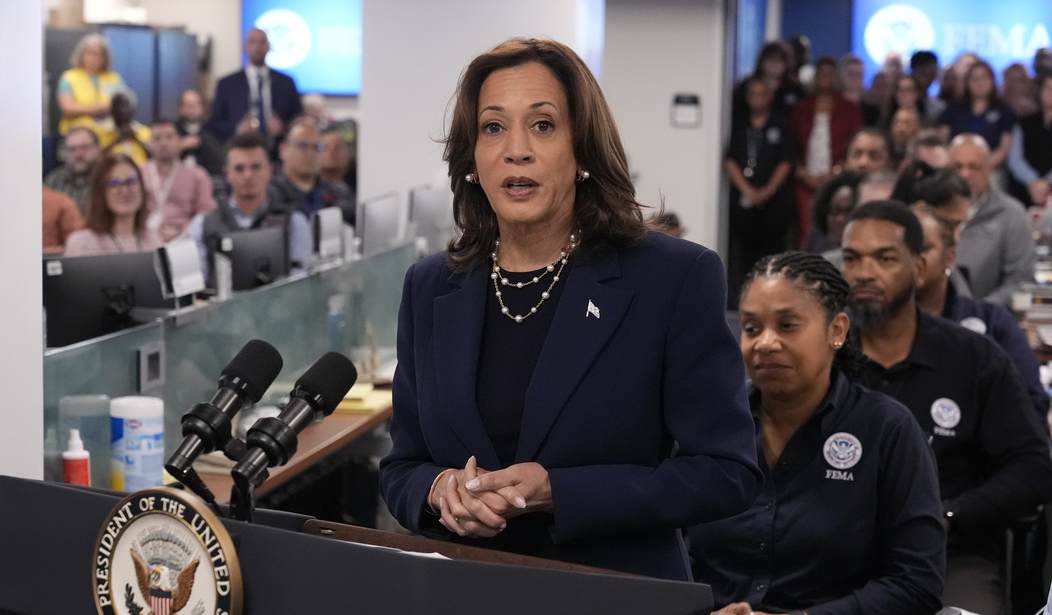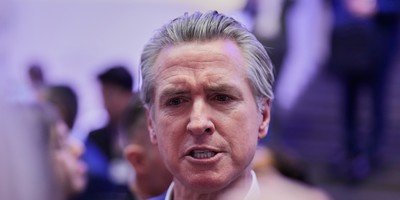Asked last week during an appearance on “The View” if she “would have done something differently than President Biden during the past four years,” Vice President Kamala Harris responded, “There is not a thing that comes to mind, in terms of, and I’ve been a part of, of, of most of the decisions that have had impact.” In other words, don’t expect anything different for the next four years. If that’s not a reason to vote for President Donald Trump, I don’t know what is.
Let’s review.
When Joe Biden and Kamala Harris took office, inflation was running at just 1.4 percent, a bit below the Federal Reserve’s 2 percent target rate. The Biden-Harris administration – which enjoyed immense political power in its first two years because Democrats also controlled both the House and the Senate – used its power to ram through its so-called “American Rescue Plan,” a $1.9 trillion boondoggle. The bill was sold as an emergency response to COVID-19, even though less than 9 percent of its money went to COVID-related expenses.
Then the Biden-Harris administration pushed through its so-called “Inflation Reduction Act,” with Harris casting the tie-breaking vote. The cost of that law has since more than doubled, to almost $2 trillion. Not only did the law not reduce inflation, most of its spending went to Green New Deal programs that never had anything to do with reducing inflation, in addition to an $80 billion appropriation so the IRS could hire 87,000 new employees.
The “American Rescue Plan” didn’t rescue America, and the “Inflation Reduction Act” didn’t reduce inflation.
Within two months of Biden and Harris taking office, inflation was surging, and by the summer of 2022 inflation peaked at 9.1 percent – the worst inflation since Jimmy Carter was president more than 40 years ago.
While the inflation rate has come down since the summer of 2022, inflation is still a problem. Just because the inflation rate has come down from 9 percent does not mean Americans are no longer struggling with its effects. That just means the increase in prices has slowed. But the prices themselves are still significantly higher than they were when Biden and Harris took office.
Recommended
Groceries, for instance, are up 22.1 percent since Biden and Harris took office. Rents are up 22.9 percent. Electricity is up 31.3 percent. Gasoline is up 33.2 percent. Motor vehicle insurance is up a whopping 56.5 percent.
And that’s not all. Housing costs have gone up, too. The average 30-year fixed mortgage rate hit a quarter-century high of 7.79 percent, and current mortgage rates are still more than twice as high as they were when Biden and Harris took office. And the median cost of a rental unit has gone up by 23 percent since 2019.
If you’re feeling financially stressed, you are not alone. Nearly half of Americans – 48.6 percent – say they consider themselves to be “broke,” and 66.2 percent say they are “living paycheck to paycheck.” Consequently, the personal savings rate – the percentage of disposable income that people put aside – was down to just 3.9 percent in August, less than half the decades-long average savings rate of 8.9 percent.
Just to make ends meet, Americans are increasingly pulling out their credit cards to cover daily expenses, because their regular income is no longer enough. Household debt is now $17.89 trillion, higher than ever before. And credit card debt has gone up to a record $1.14 trillion, up 39 percent since Biden and Harris took office. The average consumer now carries $6,329 in credit card debt.
Americans know they’re suffering under Biden and Harris. According to a Gallup poll from earlier this year, fully 50 percent of Americans say they are worse off than they were four years ago. In the 58 years that Gallup has been asking that question, the only other time the response was that high was during the Great Recession in 2008 and 2009.
Kamala Harris’ plan calls for more of the same high-tax, high-spend agenda pushed by the Biden-Harris administration for the last three and a half years – in fact, it’s actually the plan originally released by the Biden-Harris administration as its budget proposal in the spring. The centerpiece of that economic proposal is a $5 trillion tax hike over the next decade. Further, she wants to raise individual tax rates on higher incomes, and she wants to hike the corporate tax rate by 33 percent, taking it up to 28 percent and making investing in America less attractive compared to investing in its international competition – including China.
And let’s not forget her proposal for Soviet-style price controls on food and groceries, guaranteed to result in shortages, black markets, and higher prices.
For American voters, there is no issue more important than the economy. According to a new Gallup poll, “The current 52 percent of voters rating the economy as an ‘extremely important’ influence on their vote for president is the highest since October 2008 during the Great Recession.”
“There is not a thing that comes to mind,” Harris said when asked if she would do anything differently. That’s quite a telling statement, and it reveals all we really need to know to make a good decision on how to vote. If you want to be better off financially, don’t vote for the person who caused the problem. Instead, vote for Trump.

























Join the conversation as a VIP Member